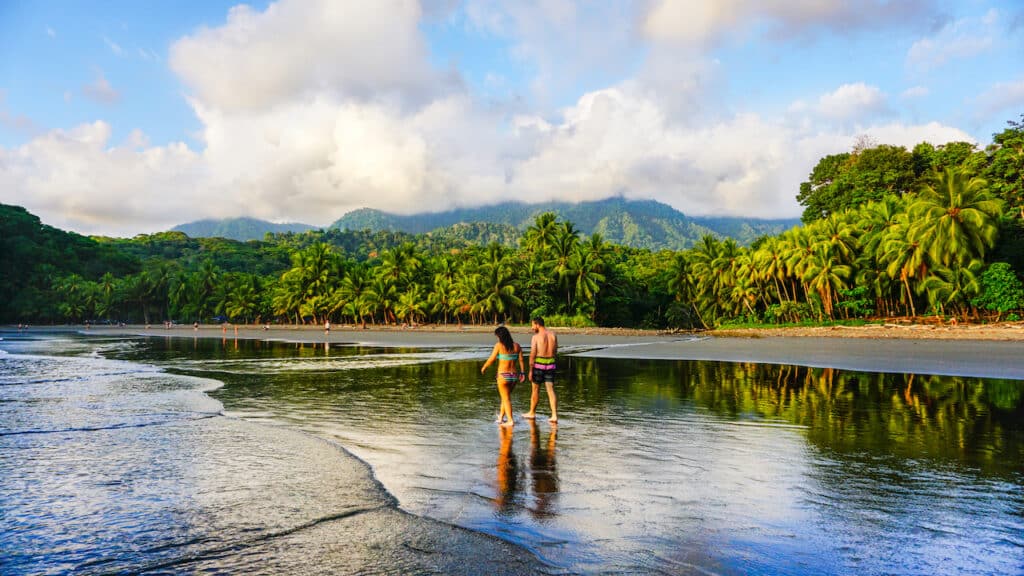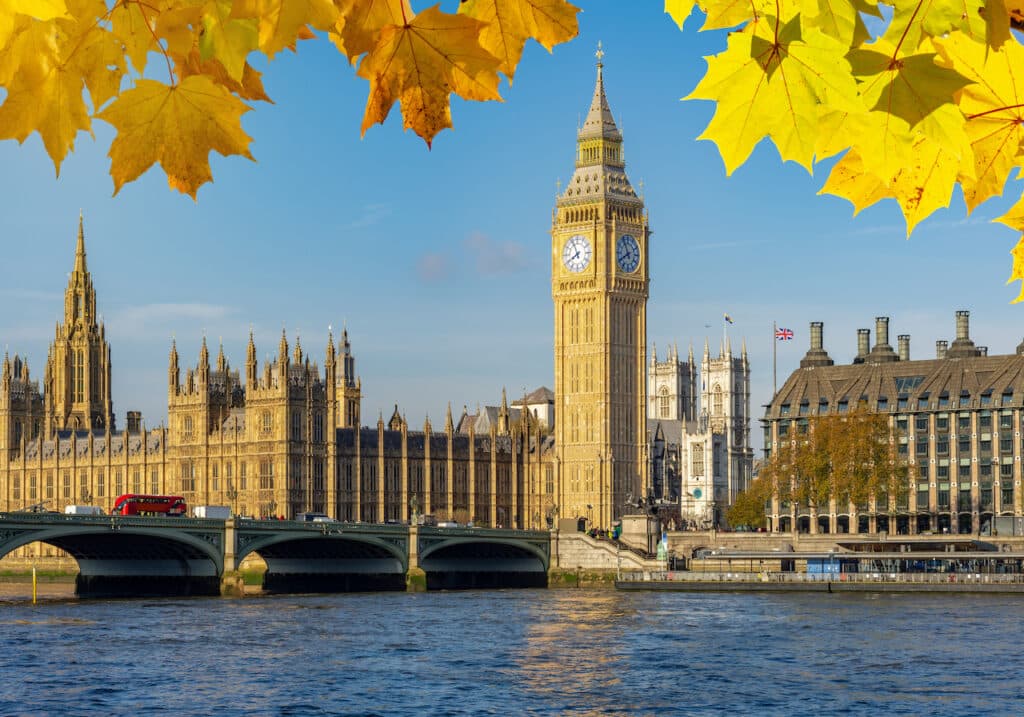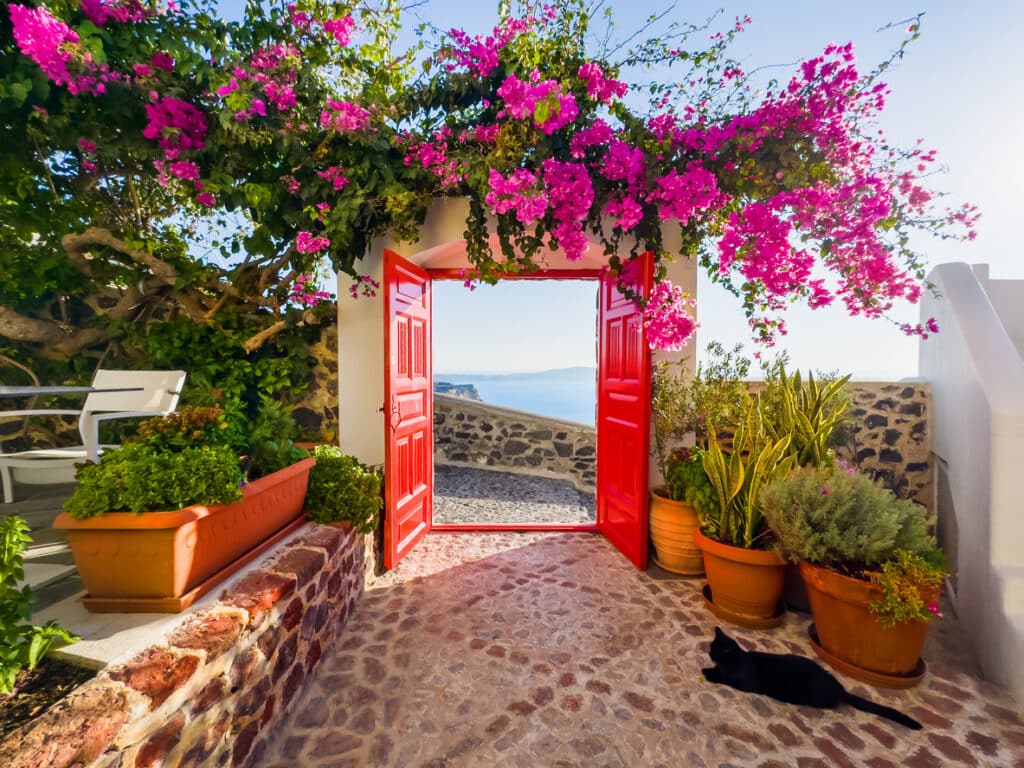Americans looking to move to a beautiful, safe, and relatively affordable country in their golden years may want to retire in Costa Rica.
Whether you want to relax, go on adventures, or indulge in a bit of both, Costa Rica’s got you covered. And with a dedicated retirement visa, moving there is much more attainable than you might think.
So, who qualifies for this visa, what’s the country’s healthcare system like, and what are the tax implications of retiring in Costa Rica? We’ll go over all of these topics and more below.
📋 Key Insights for Retiring in Costa Rica in 2025
- Costa Rica’s Pensionado visa still only requires $1,000/month in pension income—one of the lowest financial requirements in the world for retirees.
- Expats must pay 9-11% of their reported income for public healthcare but often supplement with private insurance for shorter wait times.
- Foreign-sourced income (like US Social Security and pensions) is not taxed in Costa Rica. However, if you earn rental income or run a business locally, it’s taxed at rates from 0% to 25%.
Benefits of retiring in Costa Rica
Roughly 120,000 Americans — many of them retirees — live in Costa Rica. So what is it exactly that they love about the country?
- Natural beauty: Costa Rica is home to some truly stunning natural wonders, including white-sand beaches, lush rainforests, awe-inspiring volcanoes, sprawling national parks, dramatic waterfalls, and fascinating wildlife.
- Safety: Costa Rica’s stable democracy and low crime rates make it the safest country in Latin America and the 39th safest in the world.
- Eco-friendliness: Costa Rica is a world leader in dealing with environmental issues, with 99% of its electricity coming from renewable sources, low deforestation rates, high recycling rates, and excellent sustainability practices.
- Cost of living: While Costa Rica is one of the more expensive countries in Central America, it still has a relatively affordable cost of living. By some estimates, consumer prices (including rent) are approximately 38% lower in Costa Rica than in the US.
- Relaxed pace of life: Those seeking a reprieve from the daily grind will appreciate Costa Rica’s laidback pace. In fact, the country’s unofficial motto—“pura vida”, or “pure life” in English—celebrates its easygoing, sunny attitude.
- Diversity: Costa Rica’s culture is a mix of Spanish, indigenous, and Afro-Caribbean influences, with a high number of digital nomads, expats, and immigrants adding to the diversity.
- Health & wellness: With fresh, nutritious food, access to outdoor activities, and one of the best healthcare systems in the world, it’s easy to get and stay healthy in Costa Rica.

Potential challenges for retirees in Costa Rica
Of course, there are pros and cons to anywhere you might live — Costa Rica included. Some of the potential challenges US retirees may face in Costa Rica include the:
- Language barrier: While English is more common in cities and areas popular among tourists and expats, only about 8.2% of Costa Ricans are proficient in it. Daily life is much easier for those who speak at least some Spanish.
- Infrastructure: Although Costa Rica has more advanced infrastructure compared to many other Central American countries, it still lags behind the US in some ways. Rural areas, in particular, may lack paved roads, potable tap water, and public transportation.
- Bureaucracy: Costa Rican institutions can be slow-moving, especially when it comes to processes like immigrating, starting a business, and buying real estate.
- Rising prices: Despite the fact that Costa Rica is significantly cheaper than the US on average, prices are on the rise, particularly in areas frequented by expats and tourists.
- Rainy season: While Costa Rica generally has a warm, pleasant climate, there is frequent rainfall between mid-May and November.
That said, many expats find that Costa Rica offers enough benefits to outweigh the negatives.
How to retire in Costa Rica
A dedicated temporary residence permit for retirees makes it fairly straightforward to retire in Costa Rica.
Costa Rica retirement visa: Eligibility and requirements
To qualify for Costa Rica’s temporary residence permit for retirees, you must:
- Have a clean criminal record
- Receive a pension/retirement income of more than $1,000 per month
Permissions, restrictions, and duration
The Costa Rican temporary residence permit for retirees allows holders, their spouses, and children under 25 (or older, if disabled) to live in the country for two years.
Upon expiration, you may renew the visa if you continue to meet the qualifications. After three years of living in Costa Rica, you may apply for permanent residence.
This permit also allows holders to open a business in Costa Rica or work as independent contractors. However, they may not work as employees.
Required documents & application process
The required documents for Costa Rica’s temporary residence permit application include:
- A valid passport & copy
- Two passport-sized photos
- Letter explaining why you are applying for the permit
- Fees
- $50 + $3.75 per page in the application
- Completed application form
- Fingerprint registration issued by Costa Rican Ministry of Public Safety
- Proof of consular registration issued by your local consulate
- Birth certificate
- Clean criminal background check from your home country (or wherever you’ve been living for the past three years)
- Proof of monthly pension/retirement income of over $1,000
- Documentation for any dependents who will accompany you (e.g. marriage certificate, birth certificates, medical documentation for disabled children over 25, passports, etc.)
Note:
You must apostille and translate all documents into Spanish.
To apply for the permit, you need to:
- Gather the required documents
- Submit your application at your nearest consulate (in the US) or the Immigration Office of Costa Rica (in Costa Rica)
- Note: You may need to reserve an appointment in advance, depending on the office
- Receive approval
How much does it cost to retire in Costa Rica?
While Costa Rica’s retirement visa requires you to bring in over $1,000 per month, you will likely need more to live comfortably.
How much you need exactly will depend largely on your location and lifestyle, of course. According to International Living, however, many single people can live comfortably on between $1,600 and $2,000 per month. Retired couples, on the other hand, should expect to pay between $2,000 and $3,000 per month.
To help shape your budget, here are the average prices of a few common expenses in Costa Rica:
- Rent for 1-BR apartment in city center: $662
- Rent for 1-BR apartment outside of city center: $466
- Rent for 3-BR apartment in city center: $1,253
- Rent for 3-BR apartment outside of city center: $900
- Utilities: $85.84
- Monthly public transportation pass: $41.76
- Monthly gym membership: $54.87
- Meal for two in a mid-range restaurant: $58.90
Best places to retire in Costa Rica
While there are a number of great places to live in Costa Rica, these five stand out as the top retirement destinations:
Tamarindo
Tamarindo is home to one of the largest expat communities in Costa Rica. Located in the northwestern Guanacaste province, this idyllic beach town offers premium access to the Pacific Ocean. As you can imagine, surfing, fishing, and kayaking are nearly unbeatable.
When you’ve had your fill of the beach, Tamarindo also offers excellent restaurants and hiking. And if that weren’t enough, Tamarindo is in a blue zone: an area where people live exceptionally long lives.
Escazú
Escazú, a trendy suburb in the Central Valley, offers the best of both worlds. The town has modern amenities like great shopping, dining, medical care, and schools, as well as gorgeous mountain views. In just about 15 minutes, you can reach the capital of San José — but this tranquil, affluent town still feels well-insulated from the hustle and bustle of the city.
Quepos
Quepos, located along Costa Rica’s central Pacific coast, is best known as the gateway to Manuel Antonio National Park. Despite being one of the biggest tourist attractions in Costa Rica, Manuel Antonio still has a decidedly laid-back atmosphere.
Visitors and locals alike love to lounge on the beaches, hike through the trails, and spot monkeys, sloths, and colorful birds — making Quepos a nature lover’s dream come true.
Heredia
In Heredia, Costa Rica’s storied past is on full display. The town’s colonial architecture, museums, and traditional markets all give it a quaint, traditional feel. Mountain views and beautiful flora (hence Heredia’s nickname, the City of Flowers) only add to the charm.
Coffee lovers should take particular note — Heredia has several coffee plantations that offer tours, scenic views, and some of the best java you can find in the whole country.
Dominical
Dominical, a charming beach town on the south-central Pacific coast, attracts surfers, nature lovers, and wellness buffs in equal parts. Despite its chill vibe, there’s plenty to do in Dominical, from world-class surfing to birdwatching, yoga, and waterfall hikes.
Marino Ballena National Park in Uvita is just a 20-minute drive away, where you can snorkel, SUP, and even go whale watching.
Healthcare options for retirees in Costa Rica
Holders of Costa Rica’s temporary residence permit for retirees have access to the country’s universal healthcare system. After paying a tax of roughly 9-11% of their monthly income, La Caja Costarricense de Seguro Social (CCSS) covers 90-100% of permit holders’ medical costs.
While CCSS offers extensive coverage and high-quality care, many expats choose to supplement it with a private health insurance policy.
Doing so typically grants you access to:
- Shorter wait times, especially for specialists and diagnostics
- State-of-the-art facilities
- English-speaking staff
- Dental & vision
There are two main private health insurance plans you can choose as an expat in Costa Rica:
- Instituto de Seguro Nacional (INS): Private coverage available through the Costa Rican government, with costs typically between $60 to $250 per month depending on your age and health.
- International health insurance (e.g. Cigna, Allianz, IMG): Offers extensive coverage across countries. Costs vary widely from as little as $100 per month to as much as $1,000 per month depending on coverage, age, health, etc. May not cover all pre-existing conditions.
Do Americans pay taxes in Costa Rica?
Costa Rica taxes
Those who spend more than 183 days out of a given fiscal year in Costa Rica are considered tax residents.
However, the government only levies taxes on Costa Rican-sourced income. Income coming from foreign sources — such as US Social Security payments, a pension, or a retirement plan — is typically tax-free.
Pro tip:
If you derive income from assets/goods located in or services performed in Costa Rica, it will be subject to Costa Rican taxes. Tax rates generally range from 0% to 25%. Interest, dividends, capital gains, and rental income are typically all taxed at 15%.
US taxes
Unfortunately, moving to Costa Rica does not absolve you of your US tax filing obligations. All American citizens and permanent residents who meet the minimum income reporting requirements must file an annual federal tax return. In some cases, they may even need to file state taxes.
Tax breaks for US expats in Costa Rica
The good news? US expats qualify for a couple of tax breaks that those living stateside don’t.
A commonly used break includes the Foreign Tax Credit (FTC). The FTC provides you with dollar-for-dollar credits on any foreign income taxes you’ve paid, which you can apply toward your US tax bill. However, if you don’t pay any foreign income taxes, you won’t be able to leverage this tax credit.
Remember that the US government taxes certain types of retirement income at a lower rate. Only 85% of Social Security payments, for example, are subject to taxation. Meanwhile, withdrawals from post-tax retirement accounts like Roth IRAs and Roth 401(k)s are tax-free.
Reporting obligations for US expats in Costa Rica
It’s worth noting that living abroad may change or add to your reporting obligations. Two of the most common reports that US expats must file include the following:
- Foreign Bank Account Report (FBAR): Required if you have $10,000 or more across foreign financial accounts.
- Statement of Specified Foreign Assets (Form 8938): Required if you have more than $200,000 in foreign assets on the last day of the tax year, or more than $300,000 in foreign assets at any point in the tax year. Thresholds are much lower, starting at just $50,000 for taxpayers living in the US.
Depending on your circumstances, however, you may have to file additional forms and reports. To ensure full compliance, it’s best to consult a tax professional.
Frequently Asked Questions: Taxes & Finances for US Expats
-
Do I have to pay Costa Rican taxes on my US retirement income?
No, Costa Rica only taxes Costa Rican-sourced income. Your US Social Security, pension, or investment income is generally not taxed by the Costa Rican government.
-
Will I still have to pay US taxes if I retire in Costa Rica?
Yes, US citizens and permanent residents must file a US tax return every year, even while living abroad. However, you can use the Foreign Tax Credit (FTC) if you pay taxes on any Costa Rican-earned income.
-
What are my tax reporting requirements in Costa Rica?
If you live in Costa Rica for more than 183 days per year, you become a tax resident. But since Costa Rica only taxes local income, foreign retirement income remains tax-free.
-
What are my US tax reporting obligations as a retiree in Costa Rica?
You may need to file:
- FBAR (Foreign Bank Account Report) if you have over $10,000 in foreign accounts.
- FATCA (Form 8938) if your foreign assets exceed $200,000 at year-end (or $300,000 at any point in the year).
-
How much does healthcare cost for expats in Costa Rica?
Expats on a retirement visa must join Costa Rica’s public healthcare system (CCSS), contributing 9-11% of their reported monthly income. Many retirees also buy private insurance, which costs between $60 and $250 per month through INS (Costa Rica’s government plan) or $100 to $1,000 per month for international coverage.
-
How much money do I need to retire comfortably in Costa Rica?
While the minimum pension income requirement is $1,000 per month, most retirees spend between $1,600 and $3,000 per month, depending on their lifestyle and location.

 Connect on LinkedIn
Connect on LinkedIn





